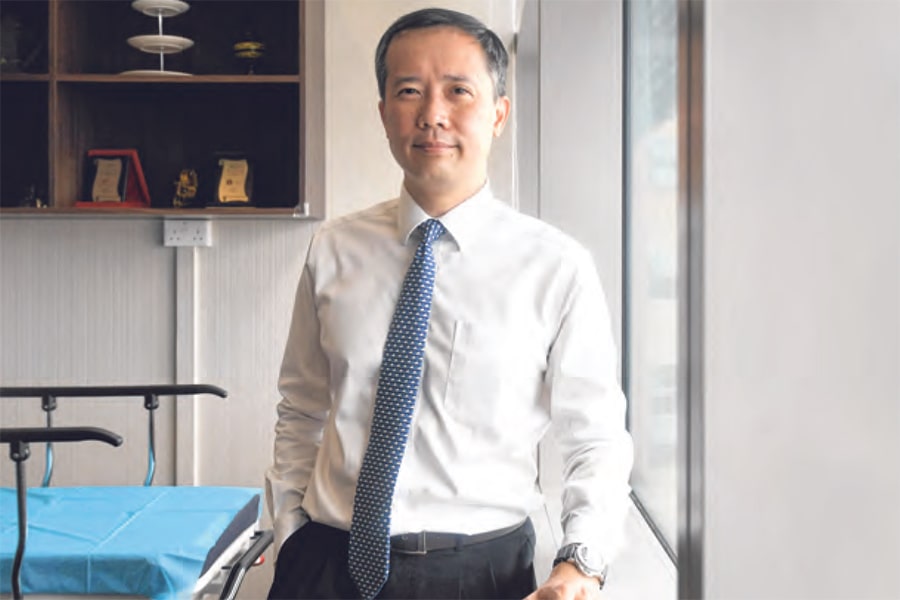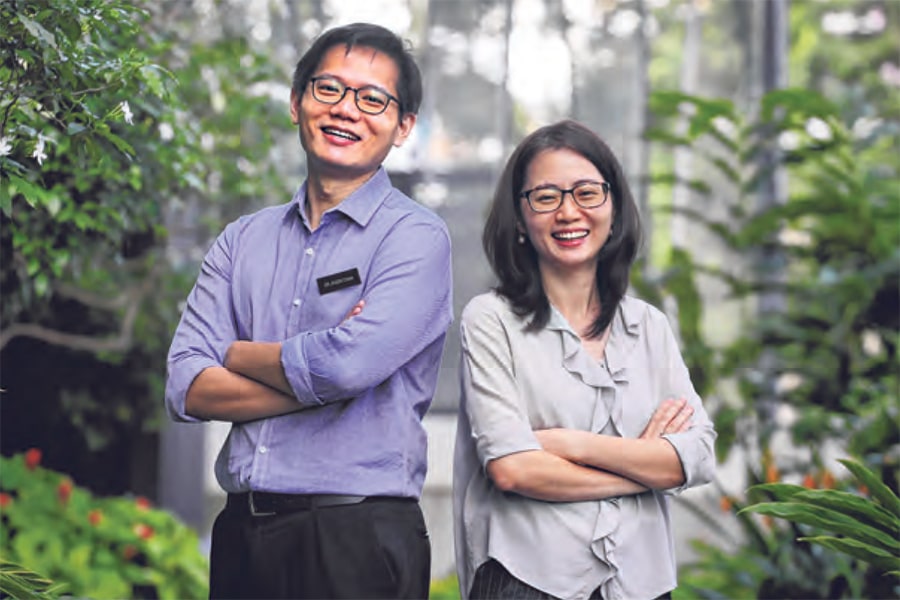The Straits Times (23 November 2022)
Lauded as highly accurate, it screens for 572 Asian-centric cancer biomarkers, mutations
Miss SW, 38, was diagnosed with fourth-stage breast cancer in September 2021 after she saw a doctor for pain in her spine. By then, the cancer had spread to her bones and organs, including her brain.
Her oncologist, Dr Donald Poon, said her breast lump was not obvious, and women her age seldom go for mammograms, which are generally recommended for those aged 50 and older.
 Oncologist Donald Poon says that of his 45 patients who have used Lucence’s Tissue500 assay, 25 found actionable mutations that existing drugs can target. ST PHOTO: ALPHONSUS CHERN.
Oncologist Donald Poon says that of his 45 patients who have used Lucence’s Tissue500 assay, 25 found actionable mutations that existing drugs can target. ST PHOTO: ALPHONSUS CHERN.
As she did not respond well to the usual drugs, Dr Poon used Lucence’s Tissue500 assay to check if her cancer has any targetable mutations.
This test, which was developed in Singapore, screens for 572 Asian-centric cancer biomarkers and mutations. It has been commercially available since September 2021.
For Miss SW, the $5,000 test was a lifesaver. It identified two possible lines of action. She was put on one that requires her to have an injection every three weeks. As a result, her cancer has been in complete remission since December 2021.
Her treatment, which costs roughly $20,000 a month, is paid almost entirely by her Integrated Shield Plan and rider.
Dr Weng Ruifen, deputy chief executive and chief technology officer of A*Star’s Diagnostics Development (DxD) Hub, was one of the scientists involved in the development of the assay. She said it can be used to test 12 cancers commonly found in Asians including liver, nasopharyngealand colorectal cancers.
Existing tests, prior to this one, were developed for cancers common in Western populations. They are also used here but may not identify all Asian-centric cancer mutations.
These assays check if the patient’s cancer has any mutations that can be targeted by available cancer drugs. Such mutations may be found in different types of cancers, including some that drugs might not yet have gained regulatory approval for.
Dr Jason Chan, a cancer consultant at the National Cancer Centre Singapore (NCCS), who was also involved in the development of the assay, said it is useful for late-stage cancer patients who no longer respond to standard treatments.
He said it could also help in the management of cancers that do not have effective treatments, such as rarer sarcomas that usually start in the bone or muscle. While it could be used in early-stage cancer, it does not make economic sense as most such patients would respond to conventional treatments.
 Dr Jason Chan (far left) of the National Cancer Centre Singapore and Dr Weng Ruifen of A*Star’s Diagnostics Development Hub were involved in the development of the test. ST PHOTO: JASON QUAH.
Dr Jason Chan (far left) of the National Cancer Centre Singapore and Dr Weng Ruifen of A*Star’s Diagnostics Development Hub were involved in the development of the test. ST PHOTO: JASON QUAH.
Dr Tan Min-Han, the CEO and medical director of Lucence, which markets the assay, said about 40 per cent of patients who took the test have found actionable mutations that have helped in their treatment.
The oncologist and cancer geneticist was also involved in the development of the assay. Lucence was founded here and has headquarters in Singapore and the United States.
Dr Tan said more than 300 patients have used the test so far, with over 120 discovering an actionable mutation – that is, a mutation for which there is a drug that can be used.
Dr Poon has had a higher rate of success. Of his 45 patients who have used the assay, 25 found actionable mutations.
He said those who failed to discover such mutations did not waste their money, since it meant they need not try expensive treatments that would not have worked.
Dr Jens Samol, a senior cancer consultant at Tan Tock Seng Hospital (TTSH), also had good results with 22 out of 31 lung cancer patients discovering a targetable mutation.
Since September, only treatments on the Cancer Drug List can be paid for with MediShield Life insurance and MediSave. Patients with mutations using a drug not on the list will continue to use standard treatments, he said.
Dr Samol said: “It is expected that through the expansion of the Cancer Drug List, more patients will be eligible for targetable therapies detected via appropriate next-generation sequencing test platforms.”
He said the test is very useful and TTSH “will continue to use this test in our routine clinical practice”. Dr Weng said the assay is highly accurate, with 99 per cent sensitivity, meaning there is only a 1 per cent chance of it not identifying a targetable mutation, should there be one.
It also has 100 per cent specificity, which means it never identifies a mutation that is not present, so there is no risk of getting a false positive result.
An article on the effectiveness of the assay developed jointly by NCCS, DxD, Singapore General Hospital and Lucence was published by Frontiers In Molecular Biosciences in September.
It said the assay’s accurate detection of genomic alterations and complex biomarkers “supports an excellent performance of this assay for making critical diagnoses and well-informed therapeutic decisions in Asian-prevalent cancers”.